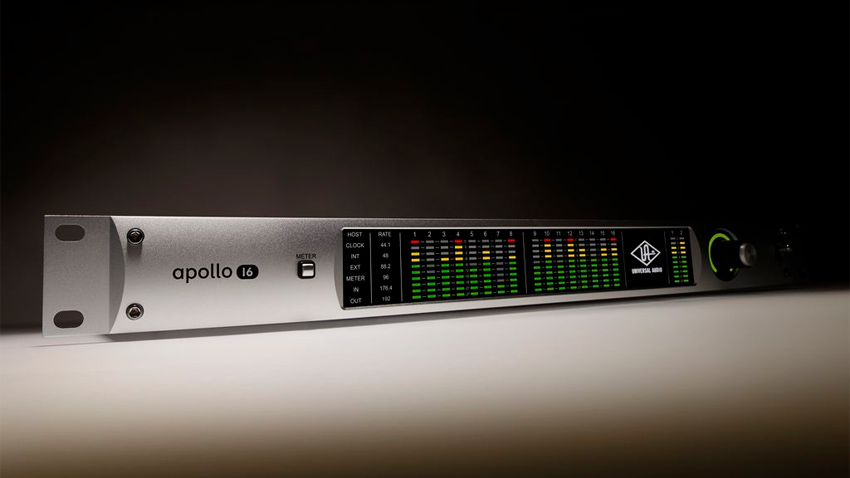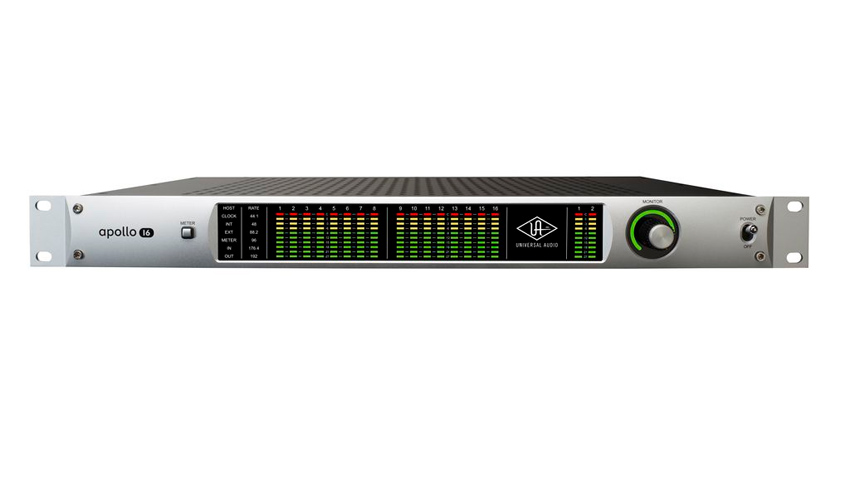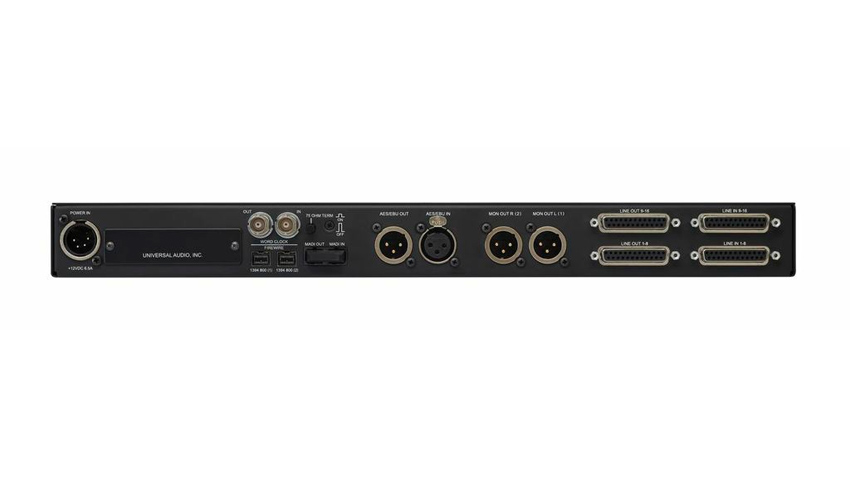Musikmesse 2013: Universal Audio announces Apollo 16 audio interface/DSP box
A 16x16 version of the Apollo

UA Apollo 16 angle

Apollo 16 front

Apollo 16 rear
MUSIKMESSE 2013: If Universal Audio's acclaimed Apollo audio interface/DSP box doesn't quite give you all the connectivity that you need, you'll be wanting to take a look at Apollo 16, the company's new high-end studio version of the product that offers 16x16 channels of analogue I/O.
Also onboard is UAD-2 QUAD processing power, which enables you to use a slew of UAD powered plug-ins in your projects.
Check out the finer details below or on the Universal Audio website. Apollo 16 will ship in May at a price of £3149.
Universal Audio Apollo 16 press release
Universal Audio (UA), a leading manufacturer of professional audio recording hardware and software, is proud to announce the Apollo 16 Audio Interface. Delivering world-class conversion with 16x16 analog I/O, this uncompromising FireWire/Thunderbolt-ready interface combines superior sound and flexible routing with powerful onboard UAD-2 QUAD processing. With its professional DB-25 connectivity and multi-unit cascading for up to 32x32 analog I/O, Apollo 16 sets a new standard in high-resolution recording with classic analog sound.
"Building on the success of the original Apollo interface, the Apollo 16 is our flagship audio converter," says Bill Putnam Jr., Universal Audio founder and CEO. "Its sound quality and scalability make it ideal for pairing with mixing consoles and outboard preamps, and the ability to track through UAD plug-ins in real time provides powerful sonic options for professional studios."
Building upon decades of UA hardware expertise, Apollo 16 features meticulous analog circuit design, top-end converters, and DC-coupled outputs — providing the lowest THD and highest dynamic range of any converter in its class. Apollo 16's deep, wide soundstage and exceptionally open and transparent sound makes it the ideal centerpiece for professional recording facilities.
With its standard UAD-2 QUAD processing onboard, Apollo 16 allows real time processing withUAD Powered Plug-Ins — with as low as sub-2ms latency — so recordists can monitor, audition, and "print" audio through stunning analog emulations from Ampex, Lexicon, Manley, Neve, Roland, SSL, Studer, and more. Apollo 16's onboard UAD processing is also available during mixing and mastering, so that music producers can employ UAD plug-ins (VST, RTAS, AU) throughout the creative process.
Get the MusicRadar Newsletter
Want all the hottest music and gear news, reviews, deals, features and more, direct to your inbox? Sign up here.
Apollo 16 boasts straightforward 16x16 analog I/O via convenient DB-25 connections. Two Apollo 16 units can be cascaded over MADI for an expanded system with eight UAD processors and 32x32 simultaneous analog I/O, capable of handling large professional mixes. Dedicated XLR monitor outputs and stereo AES-EBU digital I/O round out the Apollo 16's rear-panel audio connections.
Apollo 16's routing capabilities include four stereo cue mixes with individually assignable outputs, and a new "Virtual I/O" feature that allows for Realtime UAD Processing of DAW tracks and virtual instruments.
Apollo 16 also offers compatibility with Intel's high-bandwidth Thunderbolt technology on Macs via a user-installable dual-port Thunderbolt Option Card (sold separately). Thunderbolt provides greater UAD plug-in instances, improved performance at high sample rates, and reduced UAD plug-in latency in the DAW versus Apollo's standard FireWire connection.
Shipping in the second quarter of 2013, Apollo 16 will carry an estimated street price of $2,999US. Apollo's Thunderbolt Option Card is now available for an estimated street price of $499US.



I’m the Deputy Editor of MusicRadar, having worked on the site since its launch in 2007. I previously spent eight years working on our sister magazine, Computer Music. I’ve been playing the piano, gigging in bands and failing to finish tracks at home for more than 30 years, 24 of which I’ve also spent writing about music and the ever-changing technology used to make it.









